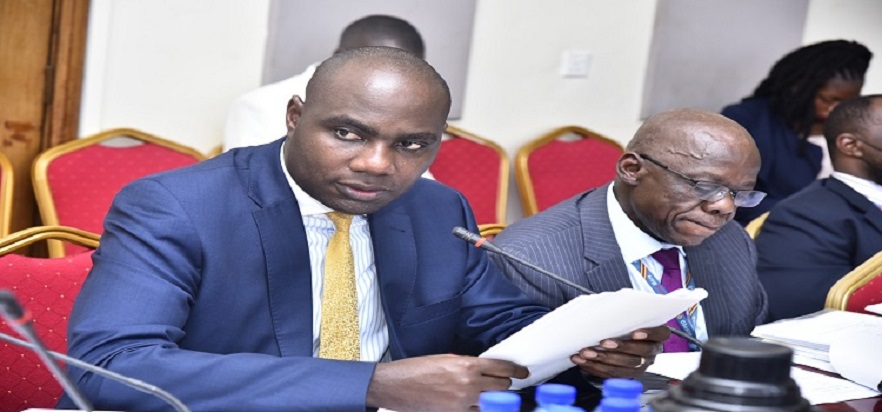Henry Musasizi, Minister of State for Finance (General Duties)
Government through the Ministry of Finance, Planning and Economic Development has proposed to end the Value Added Tax exemption imposed on children’s diapers, arguing that the poor people using towel nappies are paying tax on these items.
The revelation was made by Henry Musasizi, Minister of State for Finance (General Duties) while appearing before Parliament’s Finance Committee to present the tax bills, where he revealed that the amendment on Value Added Tax Amendment Bill 2023 will end the blanket VAT exemption on all diapers by Uganda Revenue Authority (URA).
He explained that currently the VAT law exempts supplies of diapers as medical goods and the purpose of this exemption is for medical reasons targeting the elderly people.
However URA has been VAT exempting all diapers including baby diapers whereas the towel nappies which are mostly used by the poor parents are subjected to tax.
“Besides, diapers aren’t biodegradable which makes them an environmental hazard. The proposed change in the law is meant to cater for externality and clarity that it is adult diapers that are treated as medical goods but not all diapers,” the Minister argued.
The Ministry of Finance is also seeking to start the practice of taxpayers paying taxes in both dollars and Uganda shillings after complaints from international taxpayers that the dollar rates of URA are higher than the market value, which has condemned them to pay higher taxes than their counterparts.
“There is currently a challenge emanating from the variance in exchange rates applied by URA and taxpayers bankers which disadvantages international and non-resident taxpayers that transact in dollars as in most times, URA exchange rates are higher compared to the market rates which means such suppliers end up paying more money than their competitors who transact in Uganda shillings. The proposed amendment thus caters for nonresident businesses that transact in USD to file returns in US dollars,” Minister Musasizi said.
Government is also seeking to give the Commissioner General of URA powers to determine whether to pay directly the excess tax paid by the taxpayers or have it carried forward, instead of abiding by the current provision that requires URA to seek consent of the taxpayer.
“The current law requires the commissioner general to seek the consent of the taxable person whose offset is in the excess of Shs5M in determining whether to grant an offset or require a taxpayer to apply for a refund. The requirement of seeking the taxpayer’s consent renders the provision redundant and affects revenue collection by encouraging delayed payment under the guise of an offsets,” said Minister Musasizi.





